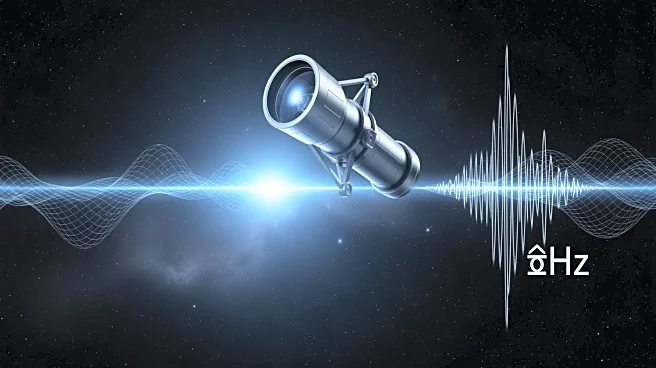What's Happening?
The Department of Defense, under Defense Secretary Pete Hegseth, is advancing new policies that impose restrictions on the Pentagon press corps. These policies have been criticized by media organizations
and watchdog groups as efforts to stifle a free press. The Pentagon Press Association has expressed concerns that these restrictions limit the media's ability to report on the U.S. military, potentially isolating reporters and affecting their ability to perform their duties. The new rules require reporters to sign a pledge not to use unauthorized material, even if unclassified, which has been seen as an attempt to turn reporters into PR representatives for the Pentagon. The association has noted that the revised policy no longer requires reporters to express agreement with the new policy as a condition for obtaining press credentials, but still asks them to affirm their understanding of policies that could expose them to prosecution.
Why It's Important?
The implementation of these press restrictions by the Pentagon is significant as it impacts the transparency and accountability of military operations to the public. By limiting the ability of journalists to report freely, the policies could hinder the public's access to critical information about military activities and decisions. This move raises concerns about the balance between national security and the freedom of the press, a fundamental democratic principle. Media organizations and legal experts are considering the implications of these restrictions, which could lead to legal challenges and affect the relationship between the press and the military.
What's Next?
The Pentagon has circulated an updated draft of the policy, giving reporters one week to review and sign. This raises the possibility that many news outlets may lose access to the Pentagon complex if they do not comply. Media organizations are expected to continue pressing for changes to the policy and may pursue legal action to challenge the restrictions. The ongoing dialogue between the Pentagon and the press will likely shape future interactions and access to military information.
Beyond the Headlines
The restrictions could have long-term implications for the role of journalism in holding the military accountable. Ethical considerations arise regarding the extent to which the press can operate independently and report on matters of public interest without interference. The situation highlights the tension between government control and journalistic freedom, which could influence future policy decisions and the public's perception of military transparency.








